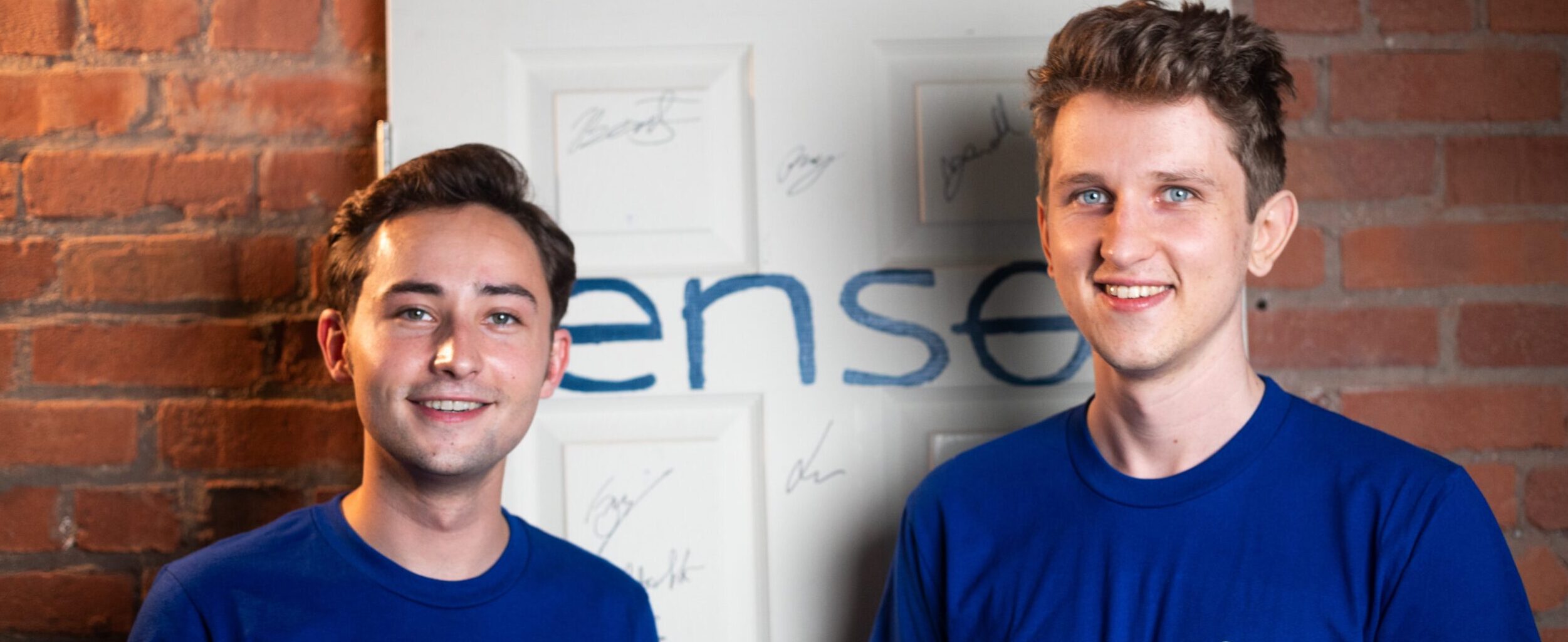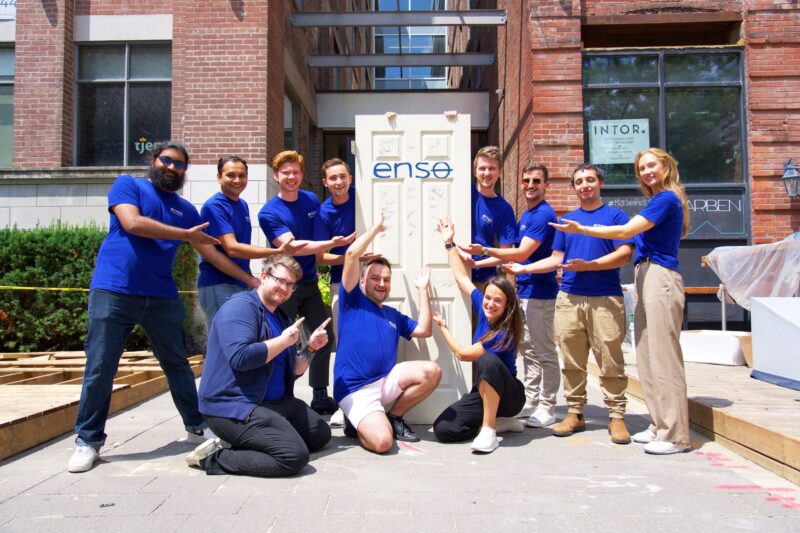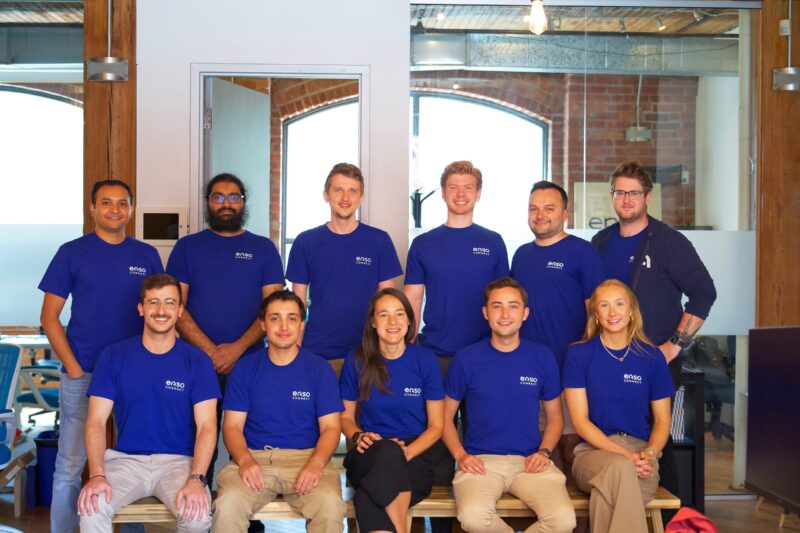What is Enso Connect?
Q: Could you introduce yourself and Enso Connect?
A: I’m Francois, one of the co-founders of Enso Connect. We’re a guest experience platform for the vacation rental industry. Our goal is to assist property managers and professional hospitality operators in digitizing and monetizing every step of the guest journey. In the world of vacation rentals, the traditional front desk of a hotel isn’t feasible, so we’ve created a solution to automate this process. This allows guests to have a seamless and enjoyable journey.
Q: What inspired the idea behind Enso Connect?
A: The idea for Enso Connect actually stemmed from a personal experience and began as a school project. I was studying computer science and cognitive science, with a focus on computational linguistics, at the University of Toronto. We were tasked with finding a solution to an entrepreneurial problem, preferably robotics-related, which I wasn’t keen on. I proposed working on smart home devices instead, and although my professor was skeptical, he agreed. The real turning point came when I learned there was a $10,000 prize for the project. I devoted all my time to it, putting my other classes on the back burner.
Around the same time, I went on a ski trip with my best friend, which turned into a nightmare. The key to our chalet was frozen under the doormat, the heating system was confusing, the host was unresponsive, and after we left, we were blamed for leaving a window open, causing $5,000 in damages and a threat of small claims court. This chaotic experience was the catalyst for creating Enso Connect – to solve these kinds of problems in the vacation rental industry.
Why Founders Factory
Q: What motivated you to join Founders Factory?
A: About 6-8 months after winning the school project competition and with the start of my Masters of Entrepreneurship at Cambridge, I decided to evolve this project into something more substantial. Our initial investment came from Creator Fund, associated with the Founders Fund group. This investment was crucial, especially as COVID hit, making it a challenging time to raise funds.
Despite the pandemic, we managed to secure a significant customer who not only utilized our service but also invested in us. This was a clear sign that we were moving in the right direction. Founders Factory showed interest in us at this critical juncture. Their involvement was pivotal because we were essentially a group of young entrepreneurs with a cool tech idea, but lacked structure. We had no real experience in organizing meetings, building a team, or the myriad other aspects that come with transforming a promising project into a fully-fledged company. Joining Founders Factory marked a significant transition from a small-scale project to a serious, structured business venture.
Founders Factory Application Process
Q: Could you describe the process of getting into Founders Factory?
A: Our entry into Founders Factory wasn’t through a traditional application process. To be honest, I don’t clearly recall a formal application. Our early traction likely played a significant role in us being fast-tracked into the program.
We did have a few interviews, but there wasn’t a formal application process that I remember. It started with a scout who was aware of us through our Creator Fund investment. After they reviewed our performance and numbers, the process moved swiftly to the investment committee. They were interested in making an investment in us.
Q: Do numbers and traction play a role in getting into the program?
A: I believe traction and performance metrics are important, especially since Founders Factory typically includes an investment in their program. They likely want to ensure there’s substantial promise in the companies they support. Our case was somewhat unconventional. We became the last investment in their travel fund, during the peak of the pandemic when travel investments were rare. Our ability to show potential in the travel sector, even amidst the pandemic, was key to our acceptance.
Inside Founders FactoryAccelerator Program
Q: Can you describe the structure of the Founders Factory program?
A: The Founders Factory program was impressively structured and highly beneficial for us. We had regular catch-ups, initially weekly and then monthly, with the original COO, Louis Warner, who was phenomenal in guiding us. His approach, now that I reflect on it, was similar to an L10 meeting, based on the Entrepreneur Operating System concept. These meetings were focused on the ‘Identify, Discuss, and Solve’ framework, allowing us to tackle various problems effectively.
Moreover, the program was organized into monthly chapters, each focusing on different high-level guidelines while still being personalized to our specific challenges. One notable chapter was on Objectives and Key Results (OKRs). I remember initially being skeptical about the relevance of OKRs, thinking we had other priorities. However, looking back, I realize how crucial they were. OKRs have become an integral part of how we operate. This transition and the gradual realization of the value of these resources were significant parts of our journey in the accelerator. The program not only addressed immediate concerns but also equipped us with tools and frameworks that proved essential in the long run.
Q: How long is the Founders Factory program typically?
A: The duration of the Founders Factory program, in our case, was a bit unique. Our journey was more investment-driven rather than purely focused on the accelerator aspect. While we did explore other accelerators, our involvement with Founders Factory was primarily because they wanted to invest in Enso Connect. The duration was intended to be between six to twelve months. However, our experience extended beyond this timeframe. We continued to engage with them and utilize their resources beyond the initial period, which shows the flexibility and ongoing support the program offered.
Q: How does the funding process work within the Founders Factory program?
A: In Founders Factory, the funding mechanism is quite straightforward. There are funds released as soon as you join the accelerator. They also offer a program that doesn’t necessarily involve an investment, which is more about scouting and support. Additionally, the demo day aspect is significant. I recall participating in a demo day, and interestingly, one of our current investors came from that event. So, it presents a substantial opportunity for growth and networking. Founders Factory is closely tied with several key funds, and this connection plays a crucial role in the opportunities and resources available to startups in the program.
Q: Can you share the funding amount you received from Founders Factory?
A: Yes, it was around $150,000. However, it’s been a while since I’ve reviewed our cap table in detail.
Q: Does Founders Factory typically participate in follow-on funding rounds?
A: Regarding follow-on investments, I’m not entirely sure. In our case, it didn’t happen, but it could be different for other startups. My understanding is that Founders Factory is more focused on the accelerator aspect rather than direct investments. They do have a separate fund for investments, and the CEO or owner is also involved with other funds, suggesting some level of interconnection. However, these entities are distinct, so their investment strategies might differ.
Key Achievements During the Founders Factory Program
Q: Could you highlight a significant milestone achieved during your time in the Founders Factory program?
A: One of the major milestones for us was structuring our development process, which was crucial for building out our platform’s functionality. Equally important was assembling a team of engineers, which involved figuring out the dynamics between outsourcing and in-house management, as well as establishing a routine for daily stand-ups and meetings.
Given our inexperience at the time – we were just fresh out of university – managing a company, let alone understanding the workings of a professional environment, was a steep learning curve. So, for us, the term ‘accelerator’ truly lived up to its name. We learned about engineering timelines, roadmaps, and structuring. While some aspects, like focusing on Objectives and Key Results (OKRs), didn’t seem immediately useful, they laid the groundwork for future strategies.
We transitioned from being a gut-feeling-driven company to one that’s more KPI and data-driven. This shift was significant, especially at a stage where we hadn’t yet achieved product-market fit and were still in the experimentation phase. The program taught us to apply a scientific method to virtually everything, enabling us to iterate quickly, abandon what doesn’t work, and focus on what does, ultimately leading us closer to finding our product-market fit.
Q: During your time with Founders Factory, did you experience a particular ‘aha’ moment or a significant realization?
A: Reflecting on our journey, I’d say that the entire experience was a continuous learning curve, with new insights emerging almost every day. The COVID period, especially, feels like a blur, making it hard to pinpoint a specific ‘aha’ moment. However, I keep coming back to our experience with structuring objectives and adopting a scientific method approach to our processes. In the early days of a startup, there’s a natural tendency to dream big, wanting to build something world-changing. However, what we learned, and what I’d consider our ‘aha’ moment, was the importance of starting small. This approach allows for a more focused and measured expansion. The accelerator helped us see the value, in a quantifiable way, of concentrating on specific aspects of our business. This realization didn’t strike immediately; it was more of a gradual process. It’s only recently, in retrospect, that the significance of these lessons has fully dawned on me. The ‘aha’ moment, in this sense, was delayed but deeply impactful, highlighting the importance of focus and measured growth in our startup journey.
Enso Connect’s Progress and Future Plans
Q: What’s the current status of Enso Connect and your future goals?
A: Since joining the accelerator, Enso Connect has seen significant growth. From managing about 68 properties at the start, we now boast around 30,000 properties on our platform, spanning across 55 countries. Our team has expanded from just me and my co-founder working in a small studio – I remember times when I used a dog bed as a seat while my co-founder used the only desk we had. Now, we have a full team and an office adorned with random emojis on the door.
In terms of business development, we’ve achieved a solid product-market fit. Our customer base has become increasingly attractive, with rising average contract values and a strong alignment between user intent and our offerings. This growth indicates not only our product’s relevance in the market but also our ability to meet and adapt to evolving customer needs.
Looking ahead, our focus is on scaling up and structuring the business for further growth. We’re moving towards creating a more repeatable, structured, and corporate framework to take Enso Connect to the next level of development and expansion.
Q: What growth channels have proven effective for Enso Connect?
A: Our primary growth channel so far has been outbound efforts. This approach has been the most successful for us to date. On the other hand, inbound channels are an area we’re still exploring and trying to quantify. Although we haven’t fully grasped the potential of inbound strategies yet, we’re noticing that it’s growing quite rapidly. When it comes to growth strategies, there are numerous approaches and angles to consider. Each channel has its unique aspects and potential, and we’re continuously exploring these to see what works best for our business model and market.
Final Advice for Founders Considering Founders Factory
Q: Do you have any advice for founders contemplating joining Founders Factory?
A: For founders thinking about approaching Founders Factory, my advice would be to consider your stage of development and traction. When we joined, we were quite early in our journey. The initial traction we had was a significant factor in our acceptance, as it was more about Founders Factory investing in us rather than us joining purely for the accelerator experience.
In the beginning, we didn’t fully grasp the value of what Founders Factory offered because we hadn’t yet reached certain milestones. As we progressed, the program adapted to our evolving needs, helping us fine-tune areas where we required the most support. My key piece of advice is to ensure you’re not just presenting an idea but are actively solving a problem, with some level of early traction. This means having not just users but paying users. There’s a substantial difference between having non-binding letters of intent and actual paying customers. If you’re at a point where you’ve begun to monetize your solution, even at a small scale, you’re likely in a good position to benefit from a program like Founders Factory.



